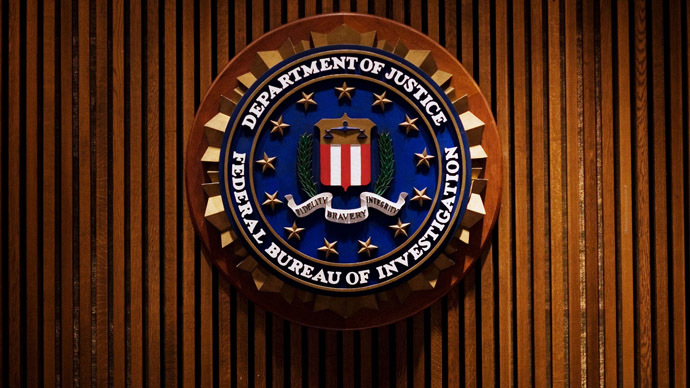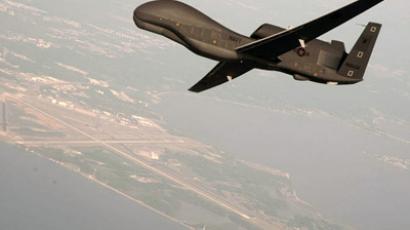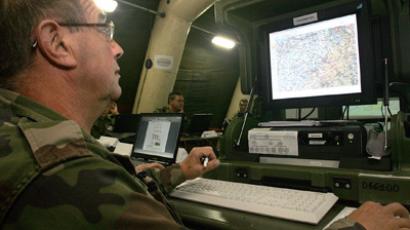FBI’s secret cooperation with Special Forces in Iraq, Afghanistan revealed

Agents from the Federal Bureau of Investigation have been quietly embedded with US troops in Iraq and Afghanistan since September 11 according to a new report that bolsters claims that the FBI has morphed primarily into a counter-terrorism organization.
The report, published Thursday by the Washington Post’s Julie Tate and Adam Goldman, reveals that members of the FBI’s renowned Hostage Rescue Team have conducted hundreds of raids in the Middle East alongside the Joint Special Operations Command (JSOC).
The inter-agency relationship was too good to ignore, with JSOC taking advantage of the FBI’s ability to use digital media to identify suspects and the FBI acquiring evidence from JSOC investigations and keeping that information in the event that the suspect would be put on trial in the US.
As JSOC became more involved in Iraq and Afghanistan, though, (the force grew in size from under 2,000 soldiers before the September 11 terrorist attacks to an estimated 25,000 in 2013) many in the bureau were reluctant to participate in what they essentially saw as the military’s job.
James Davis, the FBI’s legal attaché in Baghdad in 2007 and 2008, told the Post that it was frequent that agents “questioned whether this was our mission. The concern was somebody was going to get killed.” He said that events in which agents were involved in shootings became a regular occurrence.
“It wasn’t weekly but it wouldn’t be uncommon to see one a month,” he said. “It’s amazing that never happened, that we never lost anybody.”
At least one agent was wounded. Jay Tabb was, according to the initial report, a long-serving member of the FBI’s Hostage and Rescue Team (HRT) when he was became involved with Army Rangers who were on a mission in Ramadi. The Special Forces units raided multiple homes in the Iraqi city in March 2006 when gunshots rang out from the bottom floor of one of those homes. Two of the Rangers were killed and another member of the team, later identified at FBI Agent Tabb, was seriously wounded.
Still, many in the bureau asserted that such missions were necessary in order to gain a foothold on terrorism prevention inside the US.
“There were definitely some voices that felt we shouldn’t be doing this – period,” said former FBI deputy director Sean Joyce. “That wasn’t the director’s or my feeling on it. We thought prevention begins outside of the US.”
JSOC existed before the tragic events of 9/11 but found a new purpose after once teams were deployed in Iraq, Afghanistan, and other areas of the world considered hostile to the US. Former US Secretary of Defense worked to ensure that JSOC was responsible only to himself, President George W. Bush, and then-Vice President Dick Cheney.
Journalist Jeremy Scahill, in his book “Dirty Wars,” wrote that JSOC was “created in secrecy to perform operations that were kept hidden to virtually all other entities of military and governments,” as quoted by Business Insider.
“They’re the ace in the hole,” General Hugh Shelton, chair of the Joint Cheifs of Staff under US President Clinton, told Scahill. “If you need someone that can skydive from thirty miles away, go down the chimney of a castle, and blow it up from the inside – those are the guys you want to call on.”
As JSOC expanded, the FBI’s HRT took a similar course. The unit was first founded as a precaution when the German police proved unable to stop Palestinian terrorists from killing 11 Israeli athletes at the Munich Olympics in 1972. They did participate in rare arrests outside the US, but the HRT’s primary mission was to handle high-stakes domestic cases, including their involvement in the siege of the Branch Davidians in Waco, Texas in 1993.
The two groups discovered they could work together in 2003 when JSOC was in the market for specialists with experience hunting fugitives and other skills already used by JSOC troops.
“What JSOC realized was their networks were similar to the way the FBI went after organized crime,” James Yacone, an assistant FBI director, told the Washington Post.
Two years later, the JSOC had come to rely on members of the HRT. One unnamed military official said that as the US counter-offensive in Iraq went underway, HRT agents were charged with carrying out a number of duties alongside Special Forces.
“As our effort expanded and…became faster and more complex, we felt the FBI’s expertise in both sensitive site exploitation and interrogations would be helpful – and they were,” he said.














